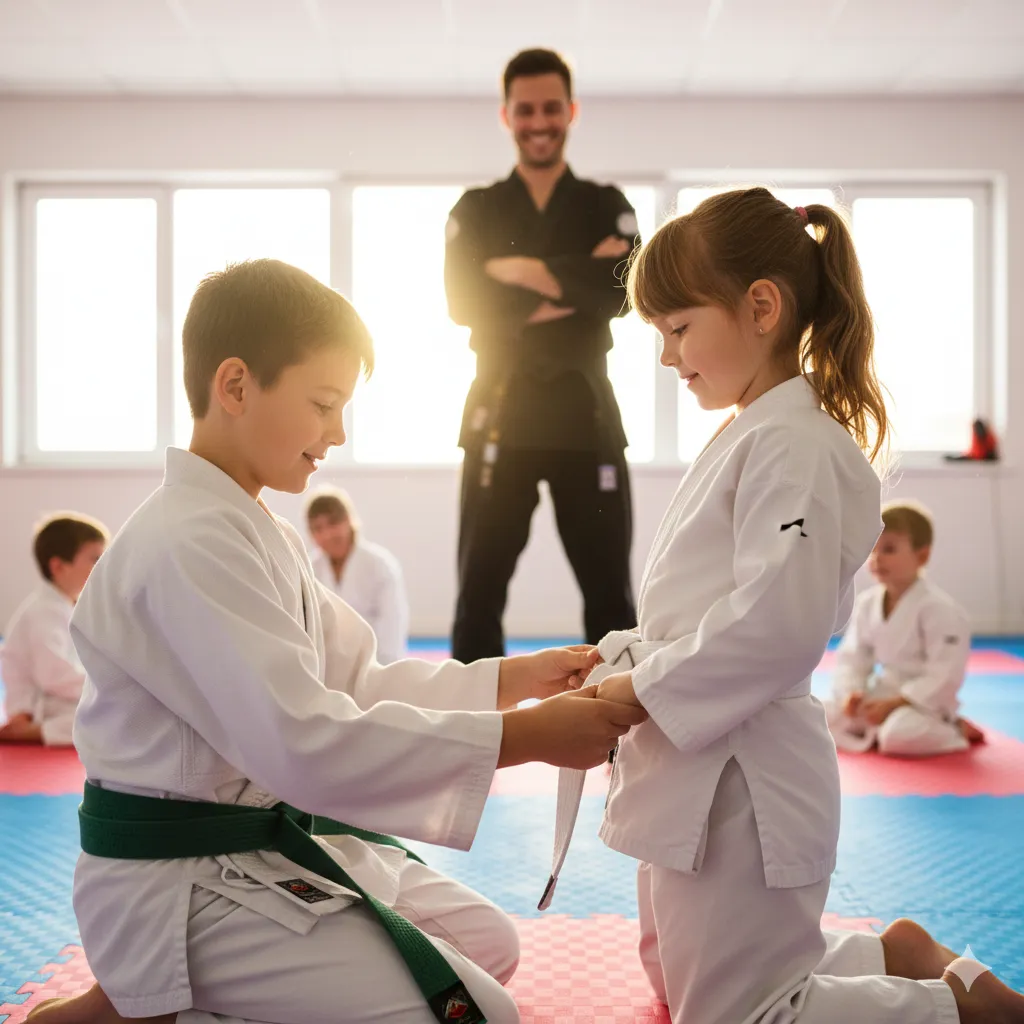
Discipline Without the Drama: How Martial Arts Reinforces Respect at Home
"Discipline is the bridge between goals and accomplishment". - Jim Rohn
Every parent has been there asking a child to clean up, listen the first time, or finish a task without arguing. And while we love our kids deeply, sometimes daily routines can feel like an ongoing negotiation.
The good news? Discipline doesn’t have to be a battle.
In fact, martial arts offers a proven, positive way to build respectful behavior without yelling, power struggles, or stress.
At its core, martial arts teaches children how to listen, follow directions, and treat others with kindness. And those behaviors don’t stay in the training room, they carry over into home, school, sports, and everyday life.
Let’s look at how martial arts reinforces respect and discipline in a way that is practical, encouraging, and drama-free.
1. Respect Is Built Into Every Class
When children walk into a martial arts school, the very first lesson they learn is respect.
They bow when they enter the mat.
They say “Yes, sir” or “Yes, ma’am” when acknowledging instructions.
They treat classmates with kindness and patience.
This isn’t forced, it’s modeled and practiced consistently, every single class.
Children begin to understand that respect isn’t just something adults want, it is how we show appreciation for others and ourselves. And once respect becomes a habit on the mat, it becomes a natural part of home life too.
2. Listening Skills Improve Through Clear, Consistent Cues
If you’ve ever asked your child to do something and received… nothing… you’re not alone.
Many children struggle with listening because instructions often come in long explanations or at overwhelming moments.
Martial arts teaches listening skills through simple, direct cues:
“Stand tall.”
“Eyes on the instructor.”
“Hands by your side.”
“Focus position.”
Repetition makes expectations clear, and children learn to respond the first time, without reminders or negotiations. This builds one of the most valuable habits a child can learn:
When I am asked to listen, I listen.
3. Self-Control Becomes a Practiced Skill
Self-control is challenging for kids, especially when they feel frustrated, excited, or upset.
But martial arts gives them a way to practice self-control in real time.
Students learn:
How to pause and breathe before reacting
How to keep their body still and focused
How to wait for directions before moving
These skills translate directly into situations like:
Waiting patiently in line
Sharing toys or space with siblings
Managing emotional moments without melting down
The more self-control they practice, the more naturally it comes.

4. Discipline Is Framed as a Personal Choice, Not a Punishment
Traditional discipline at home often sounds like:
“Do this because I said so.”
In martial arts, discipline is taught differently:
“Do this because it helps you grow stronger.”
Children learn that discipline is not about punishment, but about:
Following through on commitments
Doing hard things even when they don’t feel like it
Taking pride in their effort and progress
This shifts behavior from resistance to self-motivation.
5. Progress and Rewards Are Earned, Not Given
Belt ranks, stripes, and skill achievements are powerful motivators.
But here’s the key:
They must be earned.
Children learn that:
Effort matters.
Improvement takes practice.
Responsibility and respect lead to advancement.
Parents often notice children suddenly taking initiative at home:
Making their bed before being asked
Helping siblings
Showing more patience and politeness
Why?
Because they now understand that good behavior has meaning.
6. Communication Improves and Conflicts Decrease
As children gain confidence and emotional control, arguments at home naturally decrease.
Parents often report:
Less back-talk
More willingness to help
Better sibling relationships
Calmer responses to frustration
This is because martial arts strengthens the emotional muscles kids need to navigate everyday challenges without reacting impulsively.
7. Parents Don’t Have to Struggle Alone
One of the greatest benefits is that your child hears these values not only from you, but also from their instructor.
And sometimes, hearing:
“Respect your parents”
from their martial arts coach has more impact than when it comes from home.
This creates a partnership between family and training making discipline a shared, positive experience rather than a source of stress.
Final Message to Parents
If you’re looking for:
Respectful behavior
Better listening
More emotional control
And fewer daily battles…
Martial arts is one of the most effective and supportive tools available.
It teaches children to take pride in doing the right thing, not because they’re told to, but because they believe in themselves, and want to do their best.
And that is discipline without the drama.
